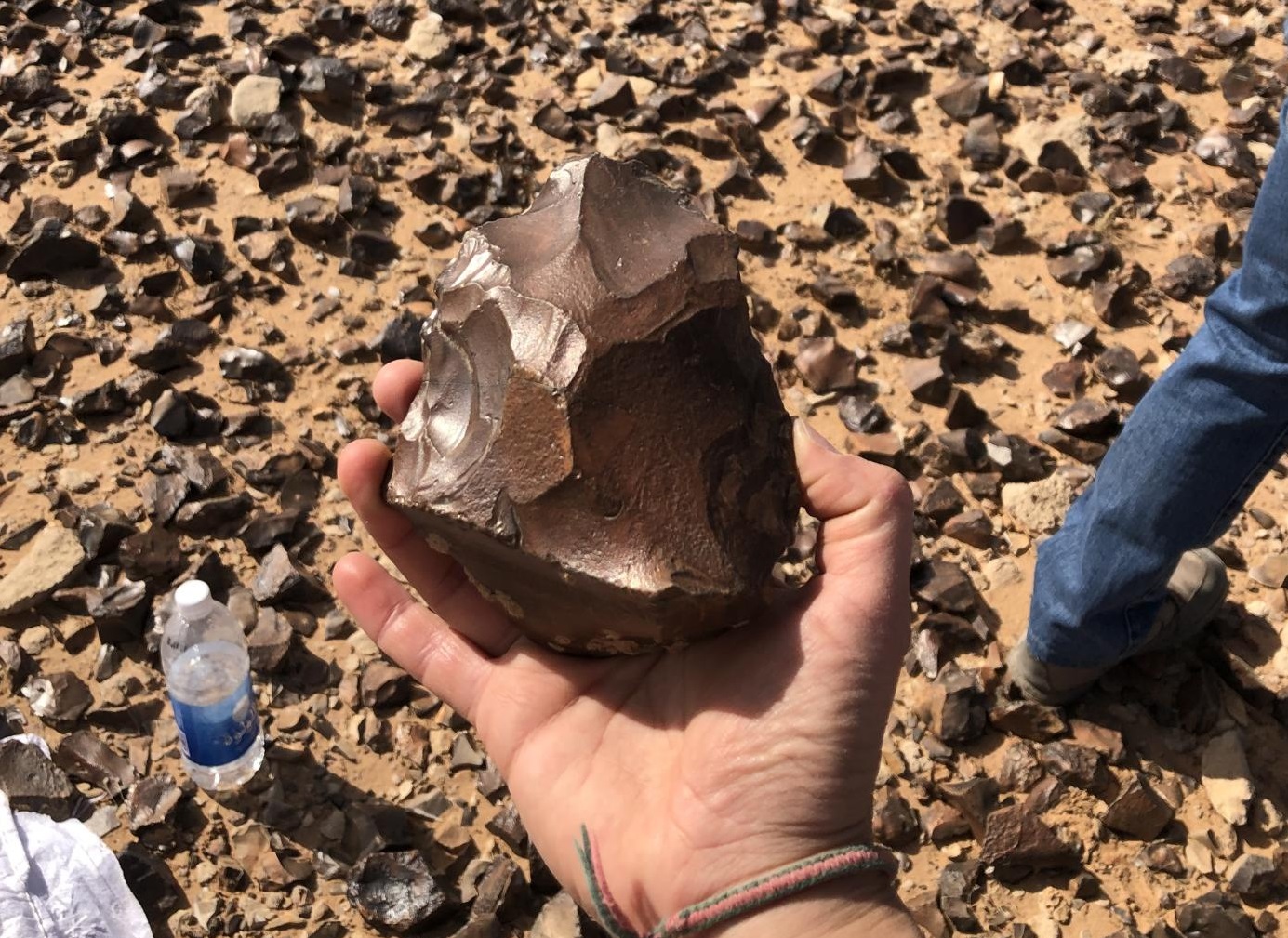In late 2024, archaeologists from the Vrije Universiteit Brussel (VUB) conducted a fieldwork study of the Iraqi Western Desert to assess the potential of preserving archaeological sites with Lower and Middle Palaeolithic artefacts.
The survey focused on the Al-Shabakah area, where during the Pleistocene was home to a large lakebed (since dried up) and traces of ancient wadi (dry riverbeds).
On the surface, archaeologists found over 850 artefacts, ranging from hand axes from the Lower Palaeolithic to Levallois reduction flakes from the Middle Palaeolithic. According to the archaeologists, the hand axes could date from as early as 1.5 million-years-ago, a period that is distinguished by the early development of stone tools.
“The fieldwork was a huge success,” said Ella Egberts from the VUB. “Our targeted fieldwork resulted in the discovery of seven Palaeolithic sites in an area of 10 by 20 km. One location was selected for a systematic study to determine the spatial distribution of the Palaeolithic material and to conduct preliminary technological and typological analyses.”
Egberts explained that the distribution of the sites will advance the understanding of the region’s geomorphological history and the emerging clues of early human landscape use. Furthermore, a systematic sampling of all the sites through an in-depth technological and typological artefact analysis will provide new insights into the broader understanding of human evolution on the Arabian Peninsula.
Egberts’ work in Iraq also has an educational aspect: “An essential part of the fieldwork was training Iraqi archaeology students in geo-archaeology and Palaeolithic archaeology. Three students accompanied us in the field, and through a workshop at Al-Qadisiyah University after the fieldwork, we inspired many more students and academics about the Palaeolithic of Iraq.”
“At a conference in Karbala, we shared our findings with a multidisciplinary academic audience interested in the history of the Western Desert. At the Writers’ Union in Najaf, we presented our results to the general public and the press. And it was wonderful to teach local elementary school children about prehistoric flint discoveries,” added Egberts.
Header Image Credit : VUB
Sources : Vrije Universiteit Brusse





